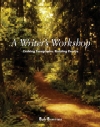 |  A Writer's Workshop: Crafting Paragraphs, Building Essays Bob Brannan,
Johnson County Community College
Revising Essays
Summary1.Essays should be revised the way paragraphs are--slowly, carefully and critically. |
 |  |  | 2.When revising your first draft, pay the most attention to content and organization. Also, keep your audience in mind. |
 |  |  | 3.Common first draft problems include ineffective thesis statements, insufficient evidence, too few topic sentences, insufficiently developed body paragraphs, and ineffective introductions and conclusions. All these problems can be corrected through careful revision. |
 |  |  | 4.In your second draft revision, shift your focus more toward word- and sentence-level issues. Examine your details to make sure they are specific, sensory and concrete. Be sure to vary sentence length and structure, and use a range transitional words. |
 |  |  | 5.When editing, be on the look out for sound-alike words, missing words, sentence fragments, comma-splices/run-ons, and improperly placed commas. |
 |  |  | 6.At the final proofreading stage, go over your essay with a fine-toothed comb. Make sure there are absolutely no spelling mistakes, and check that your margins, font size and spacing all conform to your instructor's standards. |
|



 2002 McGraw-Hill Higher Education
2002 McGraw-Hill Higher Education